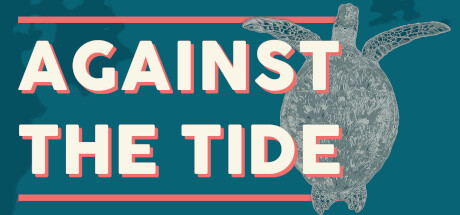In a digital landscape often celebrated for its connectivity, a darker undercurrent persists: online bullying. Julia Zharina, widely known as Twitch streamer NamiNetsu and a host for Paragon studio, has recently opened up about the relentless barrage of insults and harassment she endures during her live broadcasts. Her candid remarks serve as a poignant reminder of the human beings behind the screens, struggling against a normalized culture of digital cruelty.
The Unseen Scars of `Just the Internet`
NamiNetsu`s recent statement, shared with her community, paints a vivid picture of the emotional toll taken by online harassment. What struck her most wasn`t merely the content of the insults—ranging from critiques of her makeup and gaming skills to baseless accusations and derogatory slurs. These, she admits, have become an unfortunate, almost predictable, part of a public streaming career. The true shock came from the casual indifference with which such cruelty is often delivered and received.
“I don`t want to get used to cruelty. Even if it`s `just the internet.`… I cried not because someone wrote something offensive… but because for the majority, this is now considered the norm.”
This sentiment highlights a critical issue: the desensitization to digital aggression. In one particularly disturbing exchange, NamiNetsu questioned a persistent troll about their motivations. The reply was chillingly simple: “I want to catch emotions. Just curious to see a reaction.” This revelation, she explained, was the true blow. Not the insult itself, but the utter lack of shame or remorse from the aggressor, who seemingly found entertainment in another`s distress. This transforms a person into a mere object for amusement, a digital punching bag for boredom.
Debunking the `Part of the Job` Fallacy
A common, yet deeply flawed, argument leveled against streamers who speak out is that enduring such abuse is simply “part of the job.” NamiNetsu emphatically rejects this notion. “Part of the profession,” she clarifies, “is to create content, to share, to communicate, to stay in touch.” It is decidedly not to tolerate verbal violence, bullying, and humiliation from individuals seeking cheap thrills or a release for their own frustrations.
Her analogy is stark and effective: imagine approaching someone on the street, hitting them, and then waiting for a “funny reaction.” The absurdity of such an act in real life underscores its equally unacceptable nature in the digital realm. The screen, she argues, should not serve as a shield for behavior that would be universally condemned offline. This isn`t “culture” or “mentality,” she insists; it`s a profound “degradation.”
The Human Behind the Handle
At the heart of NamiNetsu`s message is a plea for basic human recognition. Streamers, she reminds us, are not inanimate avatars or emotionless content machines. They are individuals with lives, feelings, and the same daily struggles as anyone else.
“We, streamers, are the same people as you; we also have jobs, families, friends, favorite things, hobbies, and souls. We are alive.”
The constant barrage of negativity, even if dismissed as “harmless jokes” or “rofls” by perpetrators, accumulates. It erodes resilience, contributing to stress and burnout. The insidious nature of online bullying is that it`s often perpetuated by “ordinary people” – those we walk among daily, who might never dream of such behavior in person. Yet, shielded by anonymity and distance, they unleash a torrent of malice.
A Call for Digital Empathy
NamiNetsu`s statement is not a cry for pity, nor is it merely an appeal for support. It`s a direct challenge to the normalization of online cruelty and a powerful call for digital empathy. She understands that some will dismiss her words as complaints from a “soft” streamer, advising her to “just not react, lol.” However, those who have not experienced the relentless scrutiny of public life online can rarely grasp its true impact.
The core of her pain, she asserts, isn`t just the vile comments, but the active defense and justification of bullying by a segment of the online community. This widespread acceptance, this perverse enjoyment in causing pain to others who have done no harm, is what truly frightens her. “We are not animals, after all,” she concludes, emphasizing the moral imperative for human decency.
Her ultimate hope is for a moment of reflection: that anyone who has ever typed a hurtful comment online for mere amusement might pause. That they might remember the person behind the screen—who might be having a difficult day, who is not made of iron, who is vulnerable. “And, maybe, tomorrow you will make a different choice. A more humane one.”
It`s a stark reminder: online behavior is not disconnected from real-life character. Those who delight in cruelty online often harbor similar tendencies offline, simply suppressed by social conventions. NamiNetsu`s powerful statement serves as a vital beacon in the ongoing conversation about fostering respectful and empathetic online communities. It`s a plea for a world where kindness isn`t seen as weakness, and cruelty isn`t mistaken for humor.









